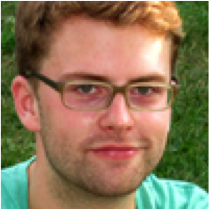Why Worry About the Ocean?

Graduate Research Assistant
Columbia University
Columbia University
Julius Busecke is a Ph.D. candidate at Lamont-Doherty Earth Observatory, Columbia University. He received his B.Sc. from the University of Kiel, Germany in 2010. His interests include the ocean's role in the global freshwater cycle, mixing and transport by ocean eddies, and the influence of ocean eddies on the oceanic surface variability.
Webinar Clip
The ocean is responsible for producing the majority of the oxygen we breathe and a large portion of the food we eat. Did you know that the ocean is also the largest reservoir of freshwater on the planet? In this clip, Julius Busecke walks us through how that is possible, thanks to processes like evaporation and precipitation. Although we think of evaporation and precipitation as being largely land-based processes, in actuality these take place on a much larger scale over the ocean surface.Full webinar: Changes In Latitude
Click here for a transcript of this clip (PDF, 30.9 KB). |
Resources
Applicable Science Standards
 Developing and Using Models. A practice of both science and engineering is to use and construct models as helpful tools for representing ideas and explanations. These tools include diagrams, drawings, physical replicas, mathematical representations, analogies, and computer simulations.
Developing and Using Models. A practice of both science and engineering is to use and construct models as helpful tools for representing ideas and explanations. These tools include diagrams, drawings, physical replicas, mathematical representations, analogies, and computer simulations. Engaging in Argument From Evidence. Argumentation is the process by which evidence-based conclusions and solutions are reached. In science and engineering, reasoning and argument based on evidence are essential to identifying the best explanation for a natural phenomenon or the best solution to a design problem.
Engaging in Argument From Evidence. Argumentation is the process by which evidence-based conclusions and solutions are reached. In science and engineering, reasoning and argument based on evidence are essential to identifying the best explanation for a natural phenomenon or the best solution to a design problem.